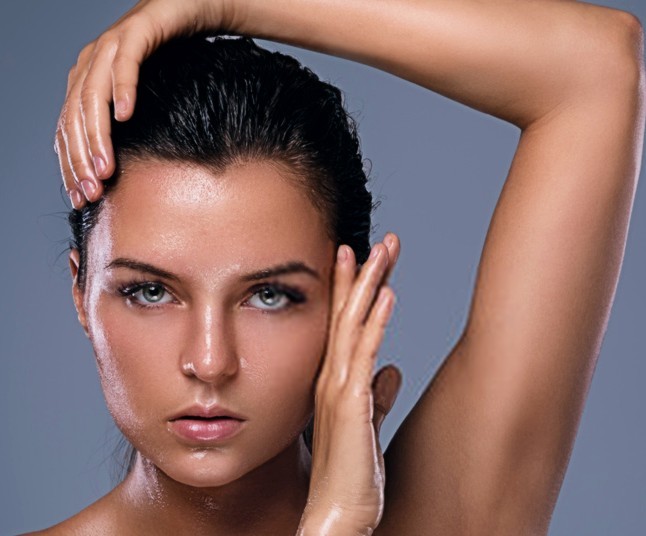
Atopic skin produces itching, redness, and lesions that appear after scratching. The symptoms worsen in the winter due to the cold weather and the lack of humidity in the environment.
Having atopic skin means, in fact, suffering from a disease called atopic dermatitis. It is a chronic inflammatory pathology that causes the skin to be dry, itchy, it flakes and tends to become irritated.
Atopic skin has genetic characteristics and affects about 20% of children [1]. However, in adults, the incidence is around 3% of the population. These people suffer worsening in the winter months, which can greatly affect their quality of life.
Itching and discomfort cause difficulty sleeping, which leads to accumulated fatigue and frequent mood swings. It is a delicate situation. Therefore, in this article, we explain what care you can perform in winter if you have atopic skin.
Read Also: 16 Natural Home Remedies to Get Rid of a Cold in 1 Day
What factors influence atopic skin?
During the winter months, people who suffer from atopic skin often suffer from an intensification of their symptoms. This is produced, first of all, by the cold. It makes the skin less hydrated and itching intensifies.
Itching leads to scratching, and hence skin lesions and peeling frequently occur. The same goes for the dryness of the environment, which is also the protagonist of winter. Not only in open environments, but the use of heating also makes the air less humid.
The lack of moisture in the skin, accompanied by lower sebum production, transforms the skin into a more fragile and irritable tissue. It is very important to keep that in mind, as there are certain cares that can help strengthen the skin and relieve symptoms.
How can you take care of atopic skin in winter?

Now that we know that the most influential in atopic skin is the dryness of it, it is important that we know certain ways to improve this problem. First of all, we can find a way to acclimatize our house to prevent the environment from being very dry.
It is clear that, if it is very cold, we must try to fight it. Even so, if we use heating, we can use humidifiers. They are objects that allow maintaining adequate humidity in the environment of our home.
In addition, we should also know that showering with excessively hot water is not suitable. Ideally, take short showers, about 10 minutes long and with warm water. Excessively hot water dehydrates the skin and also helps reduce itching.
For hygiene, it is also important to use soaps or special gels. Many marketed gels contain irritating products for people with atopic skin or tend to dry out the skin too much. In addition, doctors often recommend applying creams or lotions that keep the skin hydrated.
Currently, there are specific products for people with atopic skin. Ideally, be one chosen by the dermatologist who treats you. He can also help you choose the right products for the bathroom.
The importance of clothes
Although many people don’t know it, certain tissues cause atopic skin to get worse. The truth is that, during the winter, certain synthetic fabrics tend to be used that keep the heat better and reduce perspiration.
All these materials should be avoided, as well as the fact that clothing that is excessively glued or that contains labels or seams that rub against the skin. Even some experts recommend avoiding wool.
The ideal is to use clothes made of natural fabrics such as cotton, which are wide and do not produce too much rubbing. Above all, it is important to choose these fabrics for pajamas and sheets, since other fabrics can complicate rest.
The Bottom Line
Atopic skin worsens very often in the winter season, due to cold and lack of moisture. Therefore, it is important to keep the skin constantly hydrated and choose the tissues that are used for dressing.
Ideally, go to the dermatologist to be the one who specifically advises you on what products to use. Both when showering, to hydrate or relieve symptoms, special products should be used. Published By Healthzigzag.com




